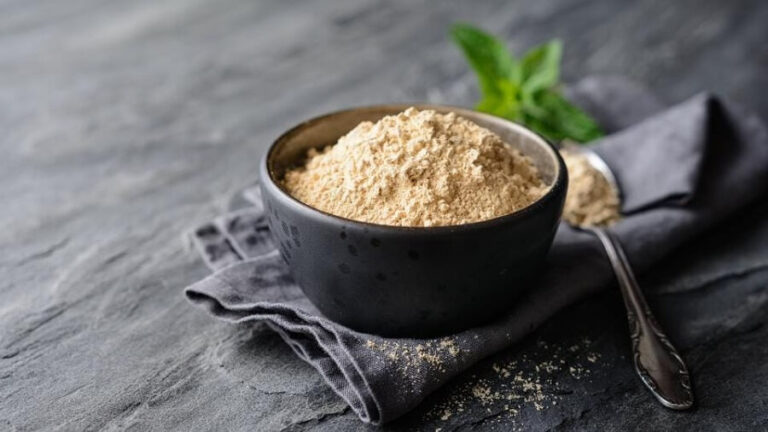Interest in MCT oil has increased in recent years. MCT oil is touted both as a weight-loss supplement, as beneficial for athletes, and even as a treatment for certain digestive disorders.
Some claim that the benefits of MCT oil are even better than coconut oil.
This article defines what MCT oil is and its benefits, uses side effects, and contraindications backed by science.
What is MCT oil?
MCTs are fats that are naturally found in certain foods. The acronym MCT refers to Medium-Chain Triglycerides.
MCT oil is a supplement that contains many of these fats.
The word triglyceride is simply the technical term for fats. The key to the benefits of MCT is in its structure.
Most of the fats you eat are made up of long-chain fatty acids, which contain up to 13–21 carbons. MCTs have between about 6 to 13 carbons.
Being shorter, MCTs are metabolized differently. MCT oil molecules are more accessible for the body to absorb and can be quickly used as an energy source.
MCT oil types
In general, MCT oil is made from coconut oil fractionation since it is in this food where they are found in greater concentration.
Additionally, MCT fats can be found in other products such as palm oil and dairy.
You can find four types of MCT oil:
- 100% caprylic (8 carbons)
- 100% capric acid (10 carbons)
- 100% lauric acid (12 carbons)
- combination of them
Caproic acid (the 6-carbon MCT) usually is not included due to its unpleasant taste and odor.
The MCT oils containing lauric acid as the main component are not the best. They can also be found under the name “liquid coconut oil.
MCT oils with caprylic acid and capric acid are believed to be absorbed and processed more quickly compared to lauric acid. (1)
MCT oil benefits
MCTs have unique digestion and absorption characteristics that can have health benefits. Research has confirmed that MCT oil can be used in weight loss treatments and improve memory and epilepsy episodes. The benefits of MCT oil are:
- It can help you lose weight
Due to their influence on thermogenesis and satiety, MCTs
have been proposed as a treatment method for overweight and obesity by reducing food intake. Studies have confirmed that daily use of MCT oil reduces body weight, waist circumference, body fat percentage, and total visceral fat. (4.5)
- Less lactate in athletes
Interestingly, MCT oil can help reduce lactate and lactic acid build-up. One study found that athletes who took 6 grams of MCT with food before cycling had lower lactate levels and found it easier to exercise than those who took LCT. (7)
Also, the same research found that taking MCT oil before exercise can help you use more fat instead of carbs for energy.
- Less heart disease
Research has shown that one of the benefits of MCT oil is to regulate triglycerides. (6) In particular, a study has confirmed that after taking a shake containing 30 g of MCT compared to LCT (mixture of alcoholic oil, canola oil, soybean oil), these were lower. (5) The same study also found that MCT can lower bad LDL cholesterol when added to the diet.
- Reduce calories
MCT oil has approximately 10% fewer calories than long-chain triglycerides (LCT). It provides fewer calories than other oils such as olive, walnuts, and avocado. Also, the body processes MCTs differently, which can help burn calories. (6.7)
- Improve memory
The theory is that using MCT oil as an alternative energy source to glucose may have memory benefits. In trials with people with Alzheimer’s disease, modest improvements in memory recall have been reported after consumption of MCT oil. (6)
- As a treatment for gastrointestinal disorders
One of the uses of MCT oil is as a treatment for gastrointestinal disorders. Doctors have used it to treat short bowel syndrome, chronic pancreatitis, and Chyles’ leaks.
In addition, MCT oil reduces abdominal pain in all these cases. (3)
- As a treatment for epilepsy
The ketogenic diet is used as a treatment for refractory childhood
epilepsy. While the ketogenic diet often consists of TBI, MCTs on the ketogenic diet may have additional benefits. More research remains to confirm the uses of MCTs for epilepsy. (3)
How to use MCT oil? – Dose
When using or taking MCT oil, some confusion can arise. The uses and dosages of MCT oil (3) are described below:
- Do not exceed 4-7 scoops per day (60-100 ml/day)
- Divide the daily dose evenly between all meals.
- If you eat three meals a day, this is the equivalent of 1-2 tablespoons per meal.
- Do not heat the MCT oil over 150 degrees; otherwise, it will affect the taste of the food.
- Mix MCT oil with food and beverages (e.g., hot cereals, soups, sauces, broths, smoothies, fruit/vegetable juices, hot chocolate, coffee, tea).
- MCT supplementation should never be the only source of fat
MCT oil on the ketogenic diet
In particular, MCT oil has become famous for those who have tried the ketogenic diet.
While the ketogenic diet often consists of TBI, the use of MCT in the ketogenic diet may have additional benefits due to its increased potential to produce oxidizing ketones rapidly. (3)
MCTs can be converted to ketones quickly, which are produced from the breakdown of fat when carbohydrate consumption is low.
If you are on a ketogenic diet or a deficient carb diet, taking MCT oil can help you stay fat-burning, known as ketosis.
Ketogenic diet MCT oil would mean using less fat in favor of more carbohydrates to allow for more variety in the diet.
The easiest way to use MCT oil on the ketogenic diet is to add it to keto or bomb coffee.
Side effects and contraindications
Although MCT oil is considered safe, it can have side effects and contraindications.
The possible side effects of MCT oil are (9):
- diarrhea
- vomiting
- irritability
- sickness
- Stomach ache
- intestinal gas
Regarding contraindications, taking high levels of MCT oil could accumulate fat in the liver.
In the liver, fats are broken down to be used for fuel or stored as body fat. Due to their shorter chain length, MCTs travel directly from the intestine to the liver and do not require bile to break them down.
High doses of MCT oil can increase the amount of fat in the liver in the long run. This could lead to complications for people with fatty liver.
A study in mice found that a diet in which 50% of the fat was MCT increased liver fat. Interestingly, the same study found that taking MCT oil reduced total body fat and improved insulin resistance.
However, high doses of MCT oil are not recommended. While more research is needed, taking more than 60% of calories in the form of MCT is not recommended. More trials are needed on the long-term effects of MCT oil.
We remember that MCT oil should be taken as part of your total fat intake and not as a primary source.
ABSTRACT
MCT oil is a supplement high in medium-chain fat. Taking MCT oil could have many benefits and very few contraindications. They can promote weight loss, reduce hunger pangs, and improve the digestive system.
Possible side effects of MCT are rare and generally occur when the doses are very high. As for contraindications, they may promote fat accumulation in the liver.
However, as long as it is used correctly: 1–2 tablespoons per day and used to replace, not add to, your average fat intake, it is unlikely to have adverse side effects.







